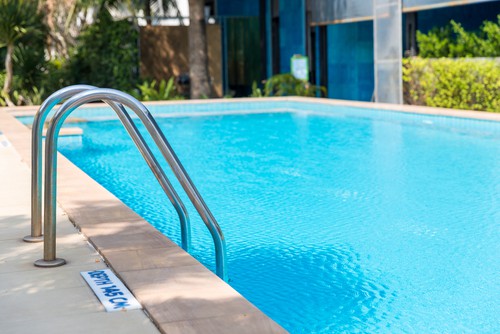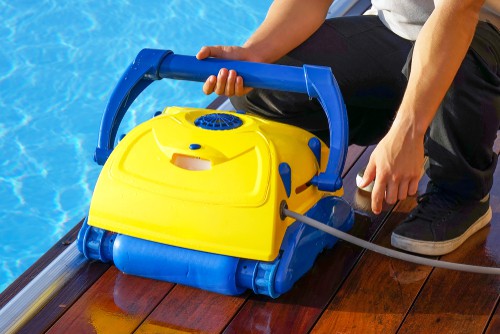
Is A Robotic Pool Cleaner A Good Investment? (2023 Guide)
January 13, 2023
Tips For Cleaning Pool Steps And Ladders
April 11, 2023Eco-Friendly Pool Cleaning Solutions: Safe For You And The Environment
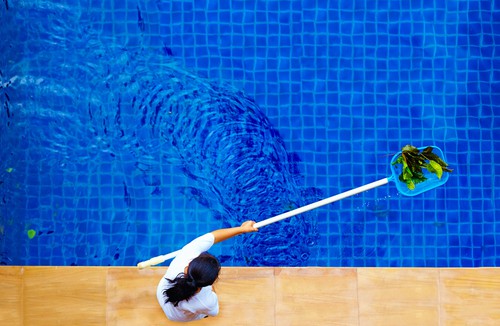
Eco-Friendly Pool Cleaning Solutions: Safe For You And The Environment. Singapore is a country that highly values the ecosystem. It is a nation known as a city in the garden and has many initiatives to preserve wildlife and the environment. As an action to protect the environment, water preservation is essential.
Practicing eco-friendly pool cleaning methods can conserve water and maximizes natural resources. How can sustainable pool cleanliness be practiced? Continue reading to find out.
What are the Environmental Risks of Maintaining Swimming Pools?
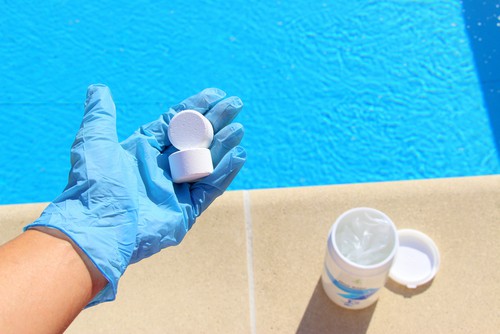
Pool maintenance requires chemicals like chlorine that contribute to ozone pollution. Chlorine mixed with dead skin cells, sweat, and dirt transforms into chloramines.
It is a chemical irritant that evaporates into a gas. It becomes a contaminant in the air. It can trigger respiratory conditions like coughing and runny or stuffed nose. People with asthma, allergies, or other lung diseases are at risk. Chlorine also has a chemical odor that is a bit unpleasant.
Eco-Friendly Pool Cleanliness Solutions:
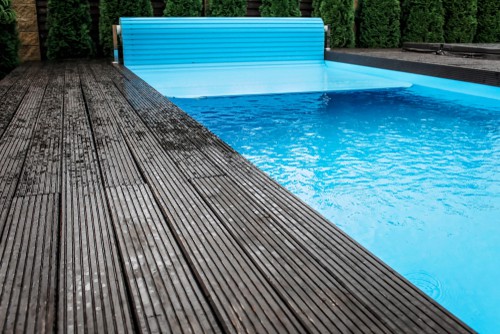
Chlorine usage reduction while keeping the swimming pool clean is an eco-friendly way. Here are some suggestions on how to accomplish that.
1. Use a Solar Pool Cover
Pools are often in outdoor settings. Exposure elements to elements are inevitable. A solar pool cover will protect it from dirt, dead leaves, and other foreign materials. It can also reduce water and chlorine evaporation which is good for the environment. This precautionary measure will lessen the possibility of algae from thriving.
Solar covers conserve water and reduce the need for water refilling. It also extends the cleanliness of the pool. The need for chemical cleaning agents and chlorine is less. It also prevents the possibility of swimmers suffering from skin irritation due to excessive chemical treatments.
2. Prevent Algae build up with Bromine
Algae thrive in swimming pools for a variety of reasons. It includes poor water circulation, high pH in water, and poor filter maintenance. Chlorine is added to the water to prevent this. But if you want to reduce chlorine concentration, using bromine tablets or solution is an option.
Bromine also eliminates bacteria and prevents algae growth. It is stable at high temperatures and does not evaporate quickly. So its cleaning effect is longer in comparison to chlorine. Bromine is also less irritating to the sensitive mucous membranes of humans and animals.
3. Try Utilizing a Moss Filter
A moss filter is an eco-friendly way to improve the pool’s filtration system. A moss is a plant. It is not a microorganism like algae. Moss filters that are under development feature the sphagnum genus. It can remove bacteria, fungi, and molds from the swimming pool.
The concept is like the natural filtration of freshwater bodies like lakes. Using this alternative method can eliminate the use of chlorine as a cleaning agent.
4. Keep an Automatic Pool Cleaner Ready
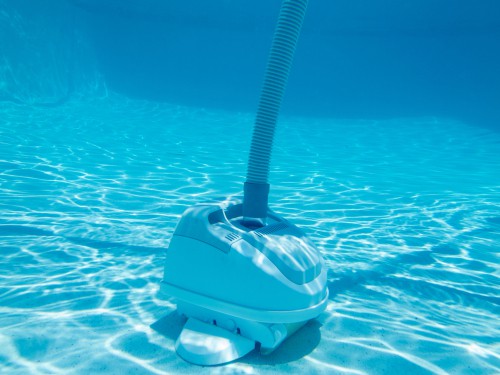
Pool filters cannot catch all the debris and dirt from contaminating the pool. You can use an automatic pool cleaner as a backup to avoid further build-up. It will help to keep the water clean and prevent algae from thriving. It can also delay the pool tiles from getting dirty immediately. The frequency of chlorine treatment will be less.
5. Use a Cartridge Filter
Cartridge filters are more commercially available than Moss filters. It is the most eco-friendly in comparison to DE and sand filters. Cartridge filters do not require backwashing and will not clog sewers. It only requires hosing with water at least twice a year. Not only does it keep your swimming pool clean, but it also conserves a lot of water.
Eco-Friendly Pool Cleaning Solutions Frequently Asked Questions:
1. Bromine tablets are more expensive than chlorine. Is it worth the cost?
Bromine is stable at high temperatures and evaporates slower than chlorine. It can also be re-activated with hypochlorous acid, so the usage lasts long.
2. What is the difference between a solar pool cover and a conventional one?
A solar pool cover reduces evaporation and keeps water levels high. Conventional pool covers do not offer this advantage.
Eco-Friendly Pool Cleaning Solutions: Safe For You And The Environment – Final Thoughts:
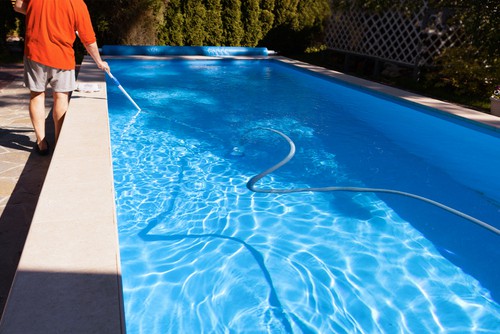
Conducting Eco-Friendly Pool Cleaning Solutions can reduce the need for pool chemical treatments. It will lessen pollution and threat to human health. It can also conserve water which has an environmental impact. Even if pool maintenance still has a long way to go in achieving 100% sustainability, small steps mean a lot.


